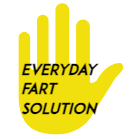How to avoid farting in public?
Have you ever found yourself in an awkward situation, desperately trying to avoid an unexpected gas release in public? “How to avoid farting in public?” is a question many of us have pondered discreetly.
The key to sidestepping public flatulence lies in understanding your body’s digestion and making simple lifestyle adjustments.
From mindful eating habits to strategic seating choices, mastering these techniques can save you from embarrassing moments.
Delve deeper into this topic with insights from Dr. Gastro, a renowned gastroenterologist, as we uncover practical tips and habits to maintain digestive health and navigate social scenarios gracefully.
How to avoid farting in public
To minimize farting in public, consider dietary adjustments like avoiding gas-producing foods such as beans, broccoli, and carbonated beverages.
Consume smaller meals throughout the day instead of large, heavy ones. Practice mindful eating, chewing food thoroughly to aid digestion and reduce gas buildup.
Here, how to control fart problem.
Incorporate regular physical activity into your routine to promote healthy digestion and minimize bloating.

Stay hydrated with water to aid digestion and prevent constipation, which can contribute to gas. Avoid chewing gum and drinking through straws, as they can cause you to swallow excess air.
Practice relaxation techniques like deep breathing and stress management to reduce nervous stomach symptoms that can lead to flatulence.
Lastly, if you feel the urge to fart in public, try to find a private or less crowded area where you can release gas discreetly and respectfully.
7 tips to avoid fart in public
1. Mindful Eating and Food Choices
Mindful eating involves being aware of what and how you eat.
Choose foods that are less likely to cause gas, such as lean proteins, fruits like bananas and berries, and cooked vegetables instead of raw ones.
Avoid gas-producing foods like beans, cruciferous vegetables (e.g., broccoli, cauliflower), onions, and high-fat foods. Additionally, chew your food slowly and thoroughly to aid digestion and reduce the likelihood of swallowing excess air.
2. Small, Frequent Meals
Instead of eating large meals, opt for smaller, more frequent meals throughout the day.
This helps regulate digestion and prevents your stomach from becoming overly full, which can lead to increased gas production. Eating smaller portions also gives your digestive system a chance to process food more efficiently.
Here, how to help yourself fart?
3. Stay Hydrated
Drink an adequate amount of water throughout the day to stay hydrated.
Water helps in digestion and prevents constipation, which can contribute to gas buildup. Avoid excessive consumption of carbonated beverages, as they can introduce extra gas into your digestive system.
4. Regular Physical Activity
Incorporate regular physical activity into your routine. Exercise helps stimulate digestion and prevents bloating and gas retention.
Aim for at least 30 minutes of moderate exercise most days of the week to promote a healthy digestive system.
5. Avoid Chewing Gum and Straws
Chewing gum and drinking through straws can cause you to swallow excess air, leading to increased gas in your digestive tract.
Avoid these habits, especially before or during public outings where you want to minimize the likelihood of farting.
6. Stress Management and Relaxation Techniques
Practice stress management techniques such as deep breathing, meditation, or yoga.
Stress can affect digestion and contribute to gastrointestinal discomfort, including gas. By managing stress levels, you can help prevent nervous stomach symptoms that may lead to farting in public.
7. Find Private Moments
If you feel the urge to fart in public, try to find a private or less crowded area where you can release gas discreetly. Excusing yourself to a restroom or stepping outside for a moment can help you avoid potentially embarrassing situations while respecting those around you.
By following these tips and making conscious lifestyle choices, you can significantly reduce the likelihood of farting in public and promote better digestive health overall.
7 food to avoid fart in public
1. Beans and Legumes
Beans and legumes are notorious for causing gas due to their high fiber and complex carbohydrate content.
These foods include lentils, chickpeas, kidney beans, and black beans.
While they offer numerous health benefits, their indigestible sugars (oligosaccharides) can ferment in the gut, leading to gas production.
Here, how to not fart in public?
To reduce gas from beans, soak them overnight before cooking, and gradually increase your intake to allow your digestive system to adapt.
2. Cruciferous Vegetables
Cruciferous vegetables like broccoli, cauliflower, Brussels sprouts, and cabbage contain compounds called raffinose and sulfur that are challenging to digest.
These vegetables are rich in fiber and nutrients but can also cause bloating and gas.
Cooking them thoroughly or opting for fermented versions (e.g., sauerkraut) may reduce their gas-producing effects.
3. Onions and Garlic
Onions and garlic are flavorful additions to many dishes but are also known for causing digestive discomfort.
They contain fructans, a type of carbohydrate that can ferment in the intestines, leading to gas and bloating.
Cooking onions and garlic thoroughly can help break down these compounds and reduce their gas-forming potential.
4. Dairy Products
Dairy products such as milk, cheese, and yogurt contain lactose, a sugar that some people have difficulty digesting due to a deficiency in lactase enzyme.
This condition, known as lactose intolerance, can lead to gas, bloating, and diarrhea after consuming dairy. Opting for lactose-free or dairy alternatives can help prevent gas related to lactose intolerance.
5. Carbonated Beverages
Carbonated beverages like soda, sparkling water, and beer contain carbon dioxide gas, which can build up in your digestive system and cause bloating and gas.
Additionally, these drinks often contain artificial sweeteners like sorbitol or fructose, which can further contribute to gas production. Limiting carbonated beverages can help reduce gas in public settings.
6. High-Fat Foods
Fatty foods like fried dishes, greasy foods, and rich desserts can slow down digestion and lead to bloating and gas.
These foods require more time and effort for your body to break down, potentially causing discomfort and increased flatulence.
Choosing leaner protein sources and incorporating more fiber-rich foods can help prevent gas associated with high-fat meals.
Here, how to fart quietly?
7. Artificial Sweeteners
Artificial sweeteners like sorbitol, mannitol, and xylitol are commonly found in sugar-free gum, candies, and diet products.
While they provide sweetness without calories, these sweeteners are not fully absorbed in the digestive tract and can ferment, leading to gas and bloating.
Reading labels and opting for products without these sweeteners can help reduce gas in public situations.
Home remedies to avoid farting in public
Home remedies to reduce farting in public include consuming ginger tea or peppermint tea, both of which can aid digestion and soothe the stomach.
Drinking warm water with lemon in the morning helps cleanse the digestive system and may reduce gas.
Incorporating probiotic-rich foods like yogurt or kefir into your diet can promote a healthy gut flora balance, reducing gas and bloating.
Consuming fennel seeds after meals can also aid digestion and minimize flatulence.

Additionally, practicing regular physical activity like yoga or walking can improve digestion and reduce gas buildup. Avoiding carbonated beverages, chewing gum, and straws can also help prevent swallowing excess air.
Lastly, managing stress through relaxation techniques like deep breathing or meditation can contribute to better digestive health and decrease the likelihood of farting in public.
Here, how to fart in goose goose duck?
Related faq’s
What can I avoid to stop farting?
To stop farting, you can avoid certain triggers that contribute to gas production.
Firstly, limit your intake of gas-producing foods such as beans, cruciferous vegetables (like broccoli and cauliflower), onions, and high-fat foods. These items can ferment in the gut, leading to increased gas.
Additionally, reducing your consumption of carbonated beverages and artificial sweeteners can minimize gas buildup in the digestive system.
Avoiding dairy products if you’re lactose intolerant can also help prevent excessive gas.
Furthermore, chewing gum, drinking through straws, and eating too quickly can introduce extra air into your digestive tract, leading to more farting.
By being mindful of your diet and eating habits, you can significantly reduce the frequency of farting.
Here how to not fart?
How do I stop farting from anxiety?
Farting due to anxiety can be reduced by practicing relaxation techniques such as deep breathing, meditation, or yoga.
These methods help calm your nervous system, reducing the likelihood of nervous stomach symptoms that can lead to farting.
Additionally, addressing the root cause of anxiety through therapy or stress management strategies can help alleviate gastrointestinal discomfort and minimize excessive gas.
How do I stop farting automatically?
To reduce farting automatically, focus on dietary changes like avoiding gas-producing foods such as beans, broccoli, and onions.
Opt for smaller, more frequent meals to aid digestion and prevent bloating. Stay hydrated with water to promote smooth digestion and reduce gas buildup.
Incorporate physical activity into your routine to stimulate digestion and prevent gas retention.
Avoid habits like chewing gum, drinking through straws, and consuming carbonated beverages that can introduce excess air into your digestive system.
Lastly, manage stress through relaxation techniques to prevent nervous stomach symptoms that contribute to farting.
How do I get over my fear of farting in public?
To overcome the fear of farting in public, start by understanding that it’s a natural bodily function.
Remind yourself that everyone experiences it, and it’s nothing to be ashamed of. Practice relaxation techniques like deep breathing or visualization to manage anxiety about farting.
Gradually expose yourself to public settings where farting may occur, desensitizing yourself over time.
Develop strategies such as finding private moments or using noise-masking techniques if you feel uncomfortable.
Remember that most people are understanding and won’t judge you for something beyond your control. Building confidence and self-acceptance can help alleviate the fear of farting in public.
Conclusion:
To avoid farting in public, one can adopt several strategies.
These include monitoring diet to reduce gas-producing foods, practicing regular exercise to aid digestion, and using over-the-counter remedies for gas.
Additionally, maintaining good bathroom habits and being mindful of body signals can help prevent embarrassing situations in public.



